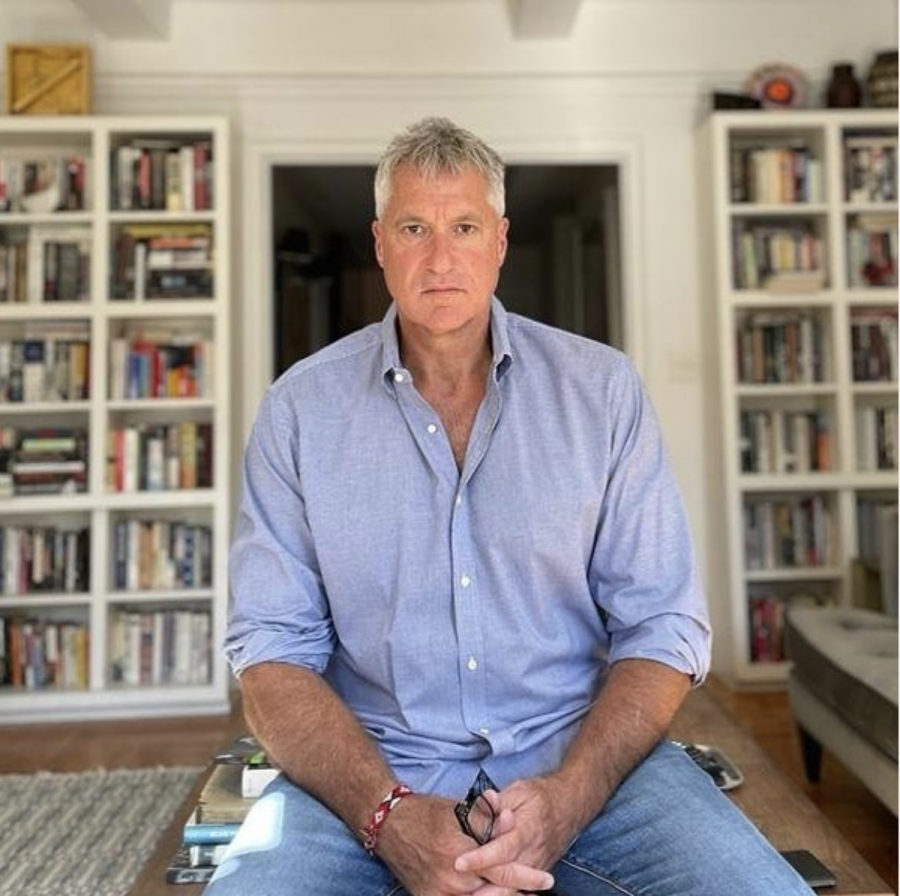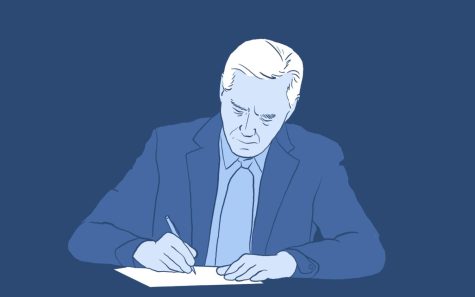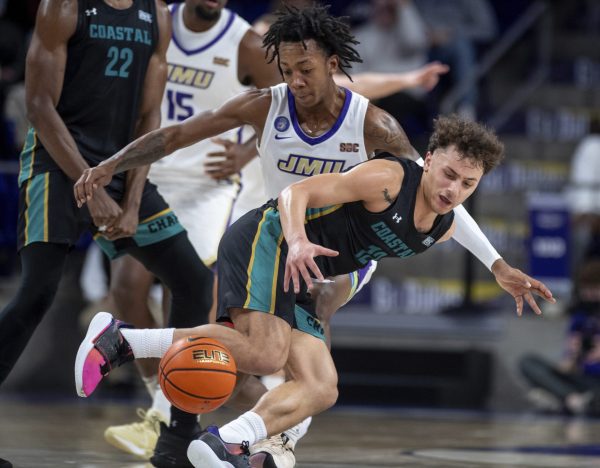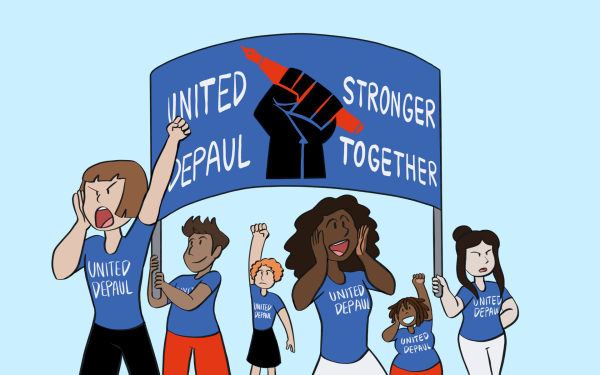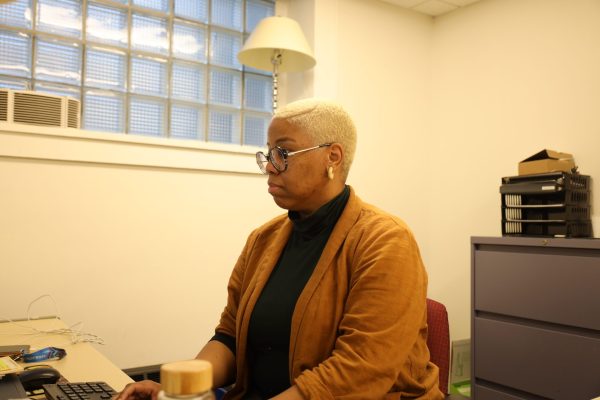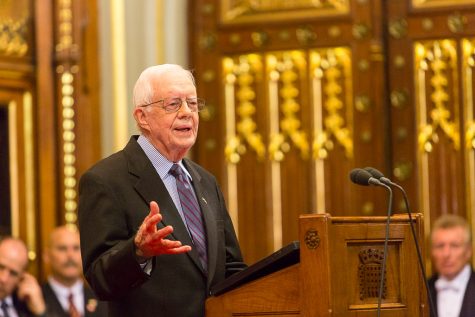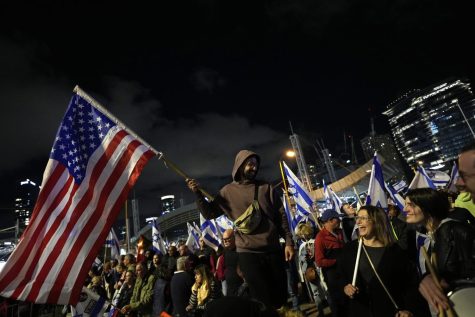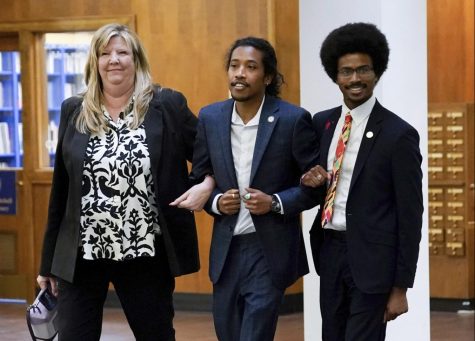Environmental activist, Steven Donziger, facing jail time for criminal contempt
Despite already serving over 800 days of house arrest, former human rights lawyer Steven Donziger may still be sent to prison as early as this week.
Donziger was sentenced to six months in federal prison for the misdemeanor charge of criminal contempt of court on Oct. 1 by New York Federal Judge Loretta Preska. His legal team filed an appeal for the conviction, but in spite of this, Preska ordered that Donziger report directly to prison. In response, his legal team filed an expedited appeal over Preska’s order. If this fails, Donziger will have to report to prison immediately while an appellate court reviews his conviction.
“If I have to serve my sentence immediately, that would be an even more terrible injustice than what’s already happened in that I will have served my entire sentence before the appellate court can rule,” Donziger said in an interview with The DePaulia.
Donziger famously won a landmark environmental case in 2011 against the Chevron oil corporation for their role in poisoning an area of Ecuadorian indigenous land the size of Rhode Island. Chevron was ordered by an Ecuadorian court to pay $9.5 billion in damages to the area’s inhabitants.
Instead, the corporation pulled its assets from Ecuador and has spent the last decade attacking Donziger in court. Chevron was aided by two New York Federal Judges (Preska and Lewis Kaplan) with financial ties to the company, and have already drained Donziger’s bank account to cover their attorney fees, placed a lien on his Manhattan apartment and held him under home confinement for over two years. Now, Donziger is on the verge of being incarcerated while never being afforded a jury, and while his conviction is still under review.
“If the appellate court exonerates me as we hope and expect, I will have [already] served my sentence for a crime I did not commit,” Donziger said of being sent to jail with a pending appeal. “It is really unheard of for this to happen in the American system.”
So much has been called unprecedented in Donziger’s legal battles with Chevron. He is being prosecuted by the private corporate law firm Seward & Kissel for his contempt of court, a practice that Sens. Ed Markey (D-Mass.) and Sheldon Whitehouse (D-R.I.) called “highly unusual” and “concerning” in a July letter. Seward & Kissel, which had represented Chevron as recently as 2018, was appointed to prosecute Donziger after the U.S. Attorney’s Office for the Southern District of New York declined to do so.
“This is obviously political retaliation for my successful advocacy on behalf of the people of Ecuador and holding Chevron accountable for pollution,” Donziger said of his prosecution.
Donziger is already the first person under U.S. law charged with a class “B” misdemeanor to be placed on house arrest prior to trial. He is also the first lawyer in New York history convicted of contempt to be held for more than 90 days in home confinement. His six-month prison sentence is the maximum for his charge, one for which no U.S. lawyer has ever spent a day in prison.
“There’s never been a lawyer ever forced to go to jail for the criminal offense I’ve been convicted of,” Donziger said. “Again, I assert my innocence. But even if you were to assume I was guilty, people just don’t go to jail for this crime.”
Despite the remarkable conditions surrounding Donziger’s prosecution, his story has largely evaded mainstream news coverage. It is important to note that Chevron invests heavily in media marketing campaigns, advertising with news organizations from The New York Times to CNN.
“It’s very disappointing to see the lack of coverage in the major media,” Donziger said. “This is an extraordinary story on a lot of levels that calls into question the very nature of our democracy. The idea that we now live in a country where human rights lawyers get locked up like this raises really scary questions about our society and what kind of world we want to live in.”
Donziger may lack support from the mainstream press, but a number of influential organizations and people have spoken out against the injustice he’s faced from the U.S. legal system. In September, the human rights body of the United Nations requested that Donziger be released immediately and paid compensation for his “deprivation of liberty.” Twenty-nine Nobel laureates signed a letter in 2020 condemning Donziger’s house arrest, calling it “judicial harassment” by Chevron.
Additionally, American students from 52 law schools, including Harvard, Yale, Stanford and NYU are actively boycotting Seward & Kissel’s recruiting process because of their role in Donziger’s prosecution.
While Donziger’s support continues to grow, there is still a good possibility that he will have to report to prison while his conviction is still under appeal. As devastating as this would be for him and his family, Donziger highlighted the importance of this case to the Ecuadorian plaintiffs who are owed their reparations.
“I think it’s important to make the point that these attacks against me are really attacks on the Ecuadorian people who beat Chevron in court,” Donziger said. “That’s what this is. And Chevron doesn’t want indigenous peoples collecting multi-billion-dollar environmental pollution judgments, and they decided that the easiest way to evade paying the judgment, and send a broader message to lawyers to not take them on, is to attack me personally.”
For now, Donziger awaits his extended appeal to see if he will have to report to prison immediately. In the best case, he will remain on house arrest until the appellate court reviews the constitutionality of his conviction.
“The case as a whole is unconstitutional. You can’t have private corporate prosecutions in America,” Donziger said.


